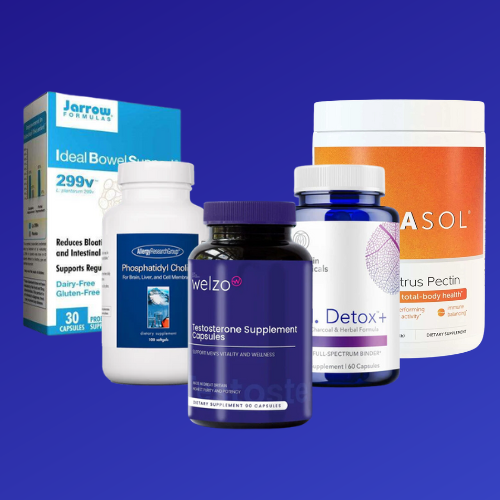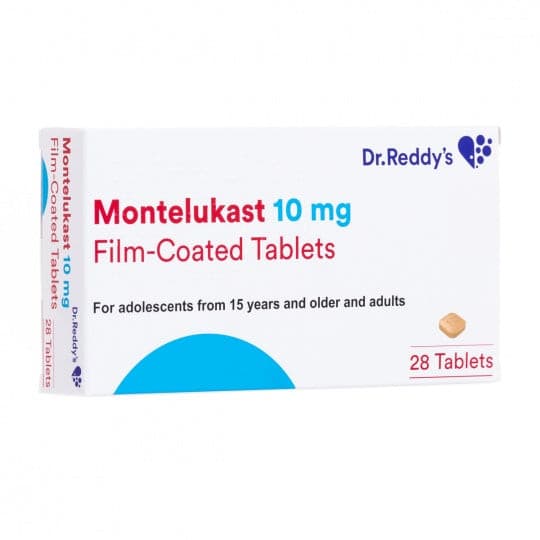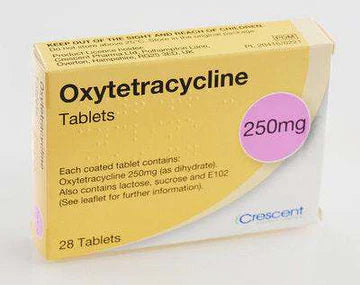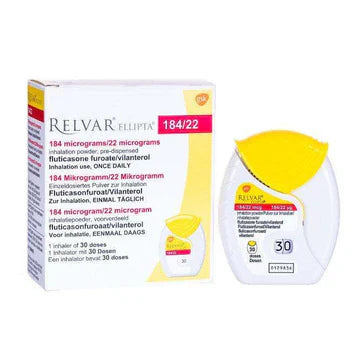
 Instagram
Instagram
What is Flucloxacillin?


Related products
What’s covered?
How Does Flucloxacillin Treat Skin and Soft Tissue Infections?Who Can Take Flucloxacillin?Flucloxacillin For ChildrenCan You Take More Flucloxacillin With an Empty Stomach?Precautions While Using Other Antibiotics or MedicationsCan I Drink Alcohol While Taking Flucloxacillin?TakeawayFlucloxacillin is only accessible with a prescription from a doctor. Furthermore, it is available in capsule form or as a liquid to be swallowed. It may also be given via injection; however, this is normally done in a hospital environment.
How Does Flucloxacillin Treat Skin and Soft Tissue Infections?
Flucloxacillin is a penicillin antibiotic used to treat bacterial infections. It helps destroy the bacterial cell wall. Flucloxacillin works by inhibiting the link that holds the bacterial membrane together. As a result, holes might be caused if the cell walls have not earlier been penetrated. The microorganisms that cause illnesses are eliminated.
Who Can Take Flucloxacillin?
Flucloxacillin is applicable to both adults and children. However, some individuals may need a lower dose of flucloxacillin or further monitoring. Moreover, if you are having surgery, are over the age of 65, or have a severe underlying illness, such as asthma, renal impairment, or liver problems, tell your doctor right away.
Dosage
Flucloxacillin's usual dose is taken four times daily from 250mg to 500mg. The dosage may be reduced for youngsters. Also, try to space your doses evenly throughout the day. For instance, before breakfast, at around midday or before lunch, late in the afternoon, and at bedtime.
Storage:
-
Put medicines out of children's reach and sight.
-
Kept in a cool, dry location away from direct heat and light.
-
If you were given liquid medication, keep it in the refrigerator. The pharmacist will prepare it, and it will last for seven days. So, check the expiration date on the bottle and don’t use it beyond this date.
How to Take Flucloxacillin Capsules
Flucloxacillin must be taken whole with a glass of water, without chewing or breaking with an empty stomach, which means at least 30 to 60 minutes before and at least two hours after a meal or snack.
On the other hand, children and others who have difficulty swallowing capsules may use liquid flucloxacillin. If you or your child need liquid flucloxacillin, your pharmacist will generally prepare it for you. The medication will be packaged with a syringe or spoon to assist you in taking the prescribed dose. Ask your healthcare provider for a syringe or spoon if you don't have one.
If you forget to take a dose, do it as soon as you remember unless your next dose is approaching. If this happens, just skip the missing dosage and return to your usual dosing schedule. Never take more than the prescribed dose.
Taking Flucloxacillin During Pregnancy and Breastfeeding
Taking Flucloxacillin is safe during pregnancy and breastfeeding. In fact, according to research, only elevated levels of flucloxacillin enter breast milk and are unlikely to produce any adverse effects on your infant.
Consult your doctor or pharmacist if you're baby experiencing any of the following symptoms:
-
Skin rash or thrush
-
Sickness or diarrhoea
-
Not eating as much as normal
Flucloxacillin For Children
It is critical that your child take this medication exactly as prescribed by their doctor in order for it to eliminate the harmful bacteria and cure their sickness.
When Should the Medication Start Working?
After taking the medication for 2-3 days, your kid should begin to feel better. It is critical that they complete the whole course of medication provided to them.
What if my Child Becomes Sick?
-
If your child becomes unwell after taking Flucloxacillin for more than 30 minutes, do not give them another dosage. Wait until the next scheduled dosage.
-
If your child becomes ill again, see your general practitioner or visit the hospital. They will make a decision depending on your child's condition and the medication involved.
Can You Take More Flucloxacillin With an Empty Stomach?
Taking more doses of Flucloxacillin has various side effects that affect more than one out of every 100 persons, especially if you take it on an empty stomach. Continue taking Flucloxacillin, but notify health professionals if any of the following adverse effects concern you or do not go away.
Common Side Effects:
-
Nausea
-
Bloating
-
Indigestion
-
Diarrhoea
-
Skin rash
-
Vomiting
-
Difficulty breathing
Serious Side Effects:
Serious side effects are uncommon, occurring in fewer than one in every 1,000 patients. Tell your doctor or call 111 immediately if:
-
You have pale faeces mixed with dark urine, and the whites of your eyes or skin become yellow (this might indicate liver problems.)
-
You experience bruising or discoloured skin.
-
You suffer from joint or muscular discomfort that appears after two days of taking the medication.
-
You have diarrhoea that involves blood or mucus (perhaps with muscular cramps) or severe diarrhoea that lasts more than four days.
Some of these significant side effects may not occur for up to two months after the flucloxacillin treatment has been completed. If you are taking high doses, your doctor may advise taking flucloxacillin with food to lessen these effects.
Precautions While Using Other Antibiotics or Medications
Some medications may interfere with flucloxacillin functions, increasing your chances of experiencing adverse effects. For instance, Flucloxacillin may inhibit the effectiveness of the oral typhoid vaccine. So, before starting flucloxacillin, tell your doctor or pharmacist if you are taking any of the following medications:
-
Warfarin, is a blood clot prevention medication.
-
Methotrexate, is an anti-inflammatory medication used to treat arthritis and other disorders.
-
Any additional antibiotics to treat infections
Flucloxacillin Risk Factors
Some drugs are not appropriate for persons with specific diseases, while others may only be used with extreme caution. For these circumstances, it is essential that you inform your doctor or pharmacist before beginning to use flucloxacillin. Don't take Flucloxacillin if:
-
You have renal failure.
-
You have an allergic reaction to a medication. This is especially crucial if you've ever had a negative response to a penicillin drug.
-
You are currently using any other medicines. This includes any non-prescription medications you are taking, as well as alternative or herbal medicines.
-
You have hepatic impairment.
-
You have kidney problems.
Furthermore, tell your doctor if you have already had or are scheduled to get an oral typhoid immunisation. Flucloxacillin may reduce its effectiveness.
Can I Drink Alcohol While Taking Flucloxacillin?
Yes, consuming alcohol while taking flucloxacillin is okay, but only in moderation. There is no detrimental connection between the two, although drinking excessively while combating an illness is not wise. When you are sick, the usual adverse effects of alcohol use, such as tiredness and nausea, are increased.
Takeaway
Flucloxacillin is used to treat bacterial infections. If taken more than a normal dose, it may have adverse effects. For most infections, you should feel better within a few days. However, even if you feel your infection has cleared up, keep taking the antibiotic until the course is finished unless you are told to stop. This is to prevent the bacterial infection from coming back. Your doctor will tell you how long your course of treatment will last. If you still feel unwell after finishing the course, go back to see healthcare professionals.
Welzo offers a large range of medications and tests which can help you diagnose and treat your symptoms. If you are unsure of where to start, complete our online health consultation.





















 Rated Excellent by 26,523+ Reviews
Rated Excellent by 26,523+ Reviews